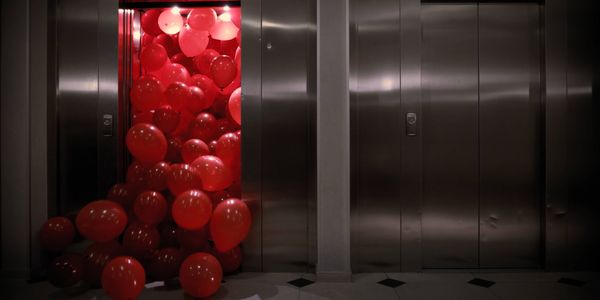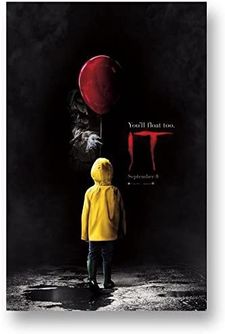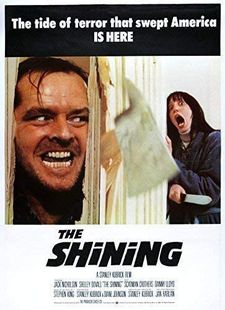 |
| King On Screen Photo: Yellow Veil Pictures |
The art of adapting books for the screen is a challenging one and we have seen time and time again that it’s impossible to make everybody happy, but some authors seem particularly well suited to having their work turned into films. Perhaps the most successful of all is Stephen King, who has had over 80 feature films and several TV series based on his books. The constitutes something of a phenomenon, and as such it’s curious how little it has been addressed. With her new documentary King On Screen, part of the 2022 Fantastic Fest line-up, Daphné Baiwir aims to set that right. This is a film which is likely to have considerable fan appeal, as well as providing an introduction to both films and books for the curious.
 |
| Daphné Baiwir Photo: Olivier Vigerie |
Daphné and I met in the run-up to the festival, and I asked her how she whittled down all of those adaptations to decide which ones to focus on. Was it about what she personally considered to be most important, or was it more about who she had access to?
“A little bit,” she says, “but I really loved a lot of adaptations. For example, I'm a huge fan of Frank Darabont. The Green Mile is one of my favourite, if not the favourite movie of all time, and actually Shawshank Redemption as well. So it just happened that the directors I love the most said immediately ‘Okay, yes!’ and came on board. I think there are a lot of very interesting adaptations, even the TV series – when you look at Storm Of The Century, for example, I think it's a very interesting one. So it was great because almost all the directors were on board with the project.”
There’s obviously too much to go into everything in detail. She dedicates quite a bit of time to talking about The Shining, and about the miniseries version of the same story which the author strongly prefers. Did she see that as a means to alert people to some of the lesser-known adaptations?
“Yeah, yeah, I thought it was interesting, especially that you say that about The Shining, because it gives another perspective on the material, actually. I think it's interesting to have this ability to see the movie in another light. And like you say about adaptations that are a little bit less known, I think there are some great ones. On The Shining the miniseries, it's very interesting, I think, because it's more faithful to the book. And it's interesting to have the director’s point of view on that, because it's interesting to know, how do you deal with an adaptation? How do you do that?”
 |
| It poster |
She goes beyond the work of Stephen King in examining the differences between what people expect from adaptations and how similar they should be to the books. Is that a subject which she’s interested in more generally as well?
“Yeah, actually, I think it's very fascinating. For example, I'm working on another film now, which has a little bit the same kind of topic, actually. It's about [John] Steinbeck who worked on Lifeboat, the film directed by Hitchcock. So I guess yes, this is something that really interests me, since always, actually, to have a look at all the process between the writer the director and their relationship, which can be kind of electric.”
Several people interviewed in the film relate their own personal journeys of getting to know King’s work. Was she, too, far too young and unable to sleep as a result?
“Well, actually, I was a kid who was really interested in horror,” she says. “I discovered Stephen King for the first time because I was looking for a book to read that could be kind of scary. And I asked my father, 'Okay, so what are your recommendations? I need to read something. I want to to have goosebumps, you know?' He told me ‘Okay, then you should read this book.’ And he gave me The Shining and I was ten at the time, I guess, and I read the book and I was like, hooked into it. Wow! Okay, that's good. And that's how I discovered Stephen King for the first time, and horror, really. Because, yeah, I had read a lot of books, but I thought they weren’t as scary as what Stephen King was writing. So yeah, it was my first encounter with Stephen King.”
A lot of his books are about young people and children. Is that something which makes it easier for people to connect with when they're younger?
“Yeah, I think it's very true to say that. Josh Boone talks about it a bit in the movie and I think it's very true, the fact that if you are young when you come to Stephen King, he’s got you for life. That's very true, because I remember reading It, and for example, the characters, the kind of friendship between the different children is something that really speaks to children, but when you read it when you are older, it's very interesting, because you see all the subtleties and the detail that you weren't very aware of when you were a child. So I thought it was interesting to read Stephen King at different ages, because you will see the material, different aspects, you can have a look at the theme with different vision.”
 |
| The Shining poster |
This makes me think about the way she builds up context in the film, so we can think about what else was happening at the time when he was writing these books. Did she feel that it was important that people were able to understand a bit about what was going on when the books originally came out, and when the films came out?
“Yeah, I think it's interesting and important, because you have to take account of the history context when you read something or when when you watch a movie, because everything is kind of related somehow to the context when it's produced. For Stephen King, for example, when you read his books, you can really feel how it was in the Seventies and all the political context. You don't have to know it to enjoy the material, but if you know it, it gives other layers.”
We’re running short on time, so I ask her what she thinks it is about Stephen King's work that makes it so easy to adapt for the screen and makes it work so well in film form.
“I think it's very cinematographic, the way he writes, because you can very well picture everything in your head. Regarding the characters, for example, or regarding the kind of feeling that you have, when he talks about little cities like Maine. You can really feel the atmosphere and I think it's something that you can really well translate to screen after.”





















